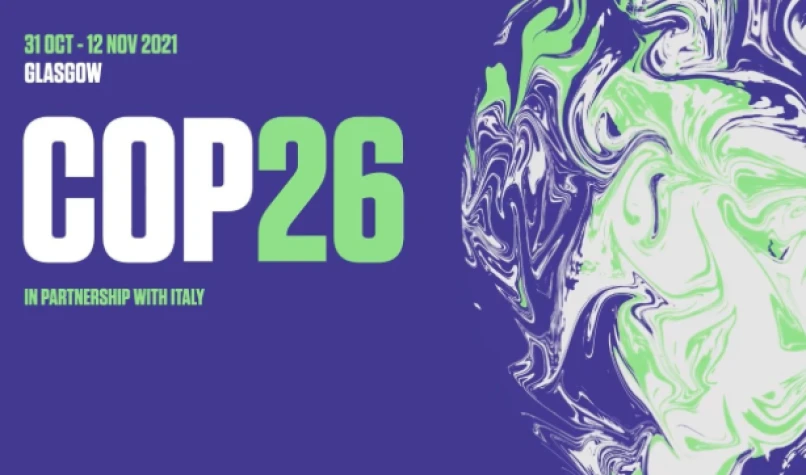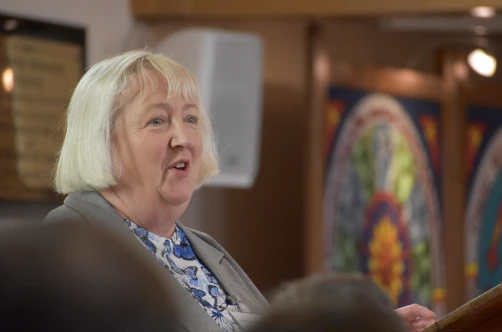
As Co–Chairs of the Irish Inter–Church Meeting, we write to you to appeal for meaningful national and international action to combat climate change and protect the most vulnerable at the COP26 Climate Conference. This Conference will be the place where the level of ambition to reduce emissions and support those countries who are worst impacted by climate change will become apparent.
While the Paris COP21 conference was successful in attaining consensus and setting targets for emissions reductions, reaching a landmark agreement to limit global temperature rises to under 2 ̊C and to pursue efforts to stay within 1.5 ̊C, the success of COP26 is vital in that it will focus on agreeing the actions and financial commitments necessary to attain these emissions reductions, as well as the accountability mechanisms to ensure that they happen.
If the decisions made at COP26 are too watered down or compromised, or have too many loopholes, or countries are not held to account for their own reductions, then it will be too late to keep global temperature increases within this limit.
The latest IPCC report shows how disastrous this would be for people across the globe — we are already seeing the impacts of climate change everywhere — but we know that the impacts are unjustly distributed, and that those who did least to cause them, are the most affected. As Christian churches, we are called to act justly and therefore the injustice of these impacts means that we must respond and call on wealthier nations to support financially those who are not equipped to adapt to these impacts.
This means that we support calls for:
- the creation of an international loss and damage fund, with new sources of finance which are in line with the ‘polluter pays’ principle (such as a global tax on fossil fuel extraction or a tax on flying). This is not a matter of charity, but rather a matter of justice as rich countries like ours owe a huge moral debt to those countries who are now bearing the brunt of climate change impacts.
- an end to the use of public money to subsidise fossil fuel exploration, extraction and use (not just coal).
- a requirement for the implementation of national action plans to meet obligations with sectoral annual targets for emissions reduction.
In domestic terms, the fact that the island of Ireland is a single environmental entity means that deep collaboration is necessary between both jurisdictions on the island to:
- protect and foster biodiversity.
- ensure a just transition, which protects those who are most vulnerable and those whose livelihoods will be most impacted by the changes required.
- promote increased investment in renewable energy sources.
- transform transport policy with a prioritisation of infrastructure to support on walking, cycling and public transport before electric cars.
- progressively reduce dependence on fossil fuels, specifically rejecting the construction of an LNG terminal and the use of imported fracked gas.
- ensure that policies across all areas of government reflect our commitment to climate justice.
Through our development partners, Irish churches are working with those worst affected throughout the world. We see first–hand the interconnectedness of climate change with other major issues such as forced migration and loss of the ability to provide food for ones family in previously fertile areas.
In 2019 The Irish Council of Churches adopted our Affirmations on Climate Justice and Care of Creation (irishchurches.org/climate) which guide our engagement on climate change. Through this our member churches committed, both internationally through collaboration with our development partners and domestically through Eco–Congregation Ireland, to reduce emissions and transform our practices as organisations, local church communities and individuals by celebrating the gift of God’s creation, recognising the inter–dependence of all creation and caring for it in our life and mission and through our personal lifestyles. We recognise the need to support our political leaders in ensuring that the COP26 Conference leads to meaningful, transformative action.





